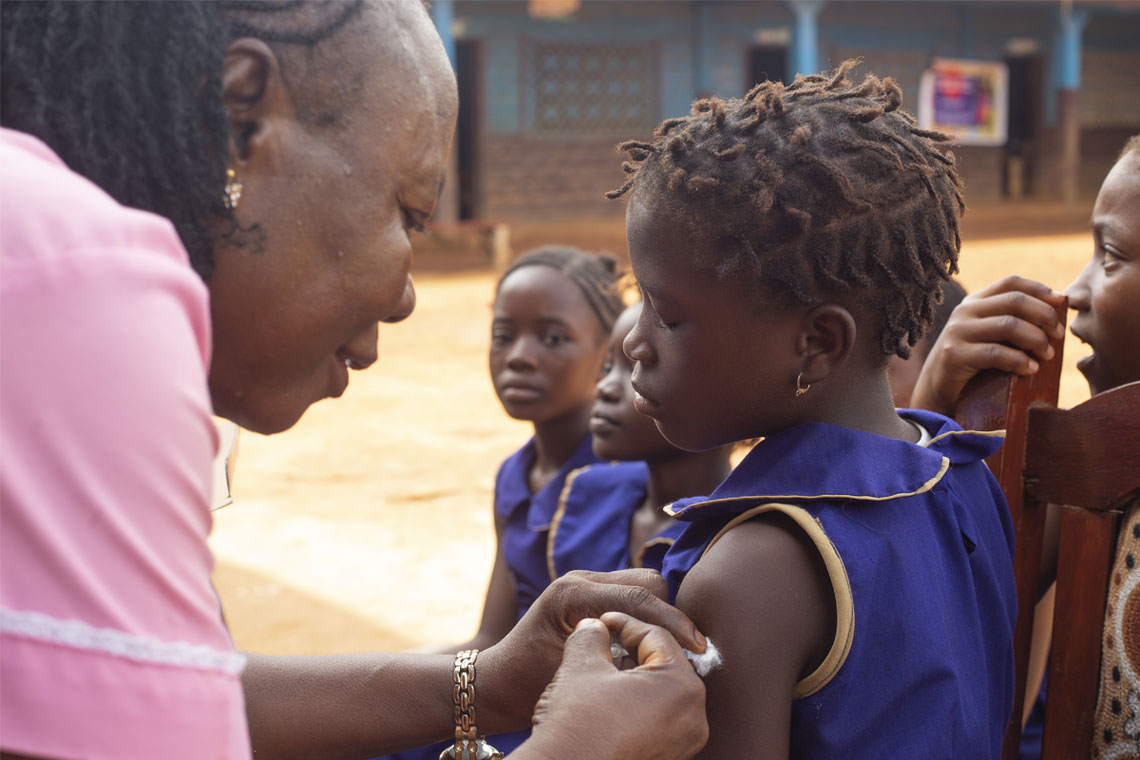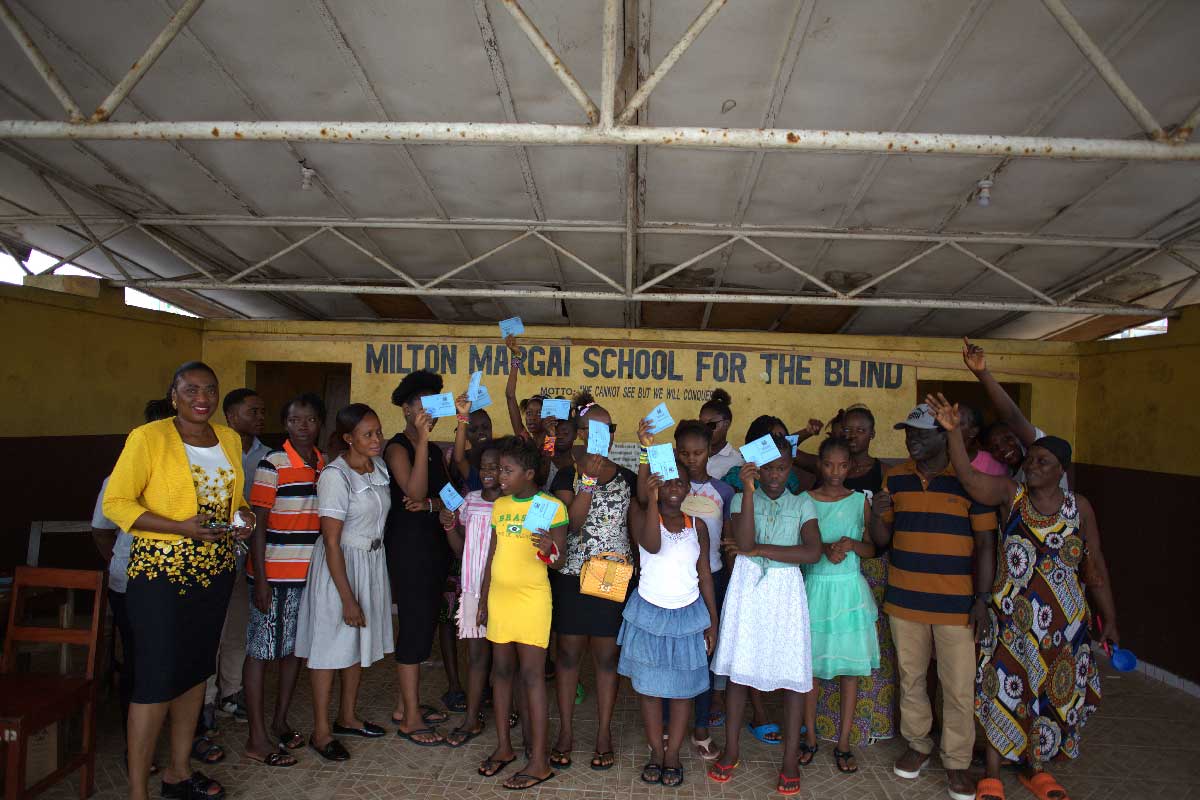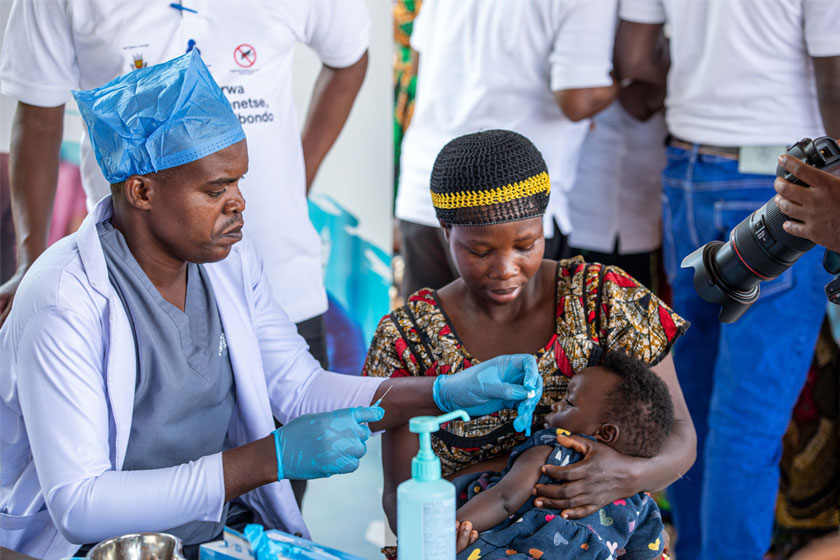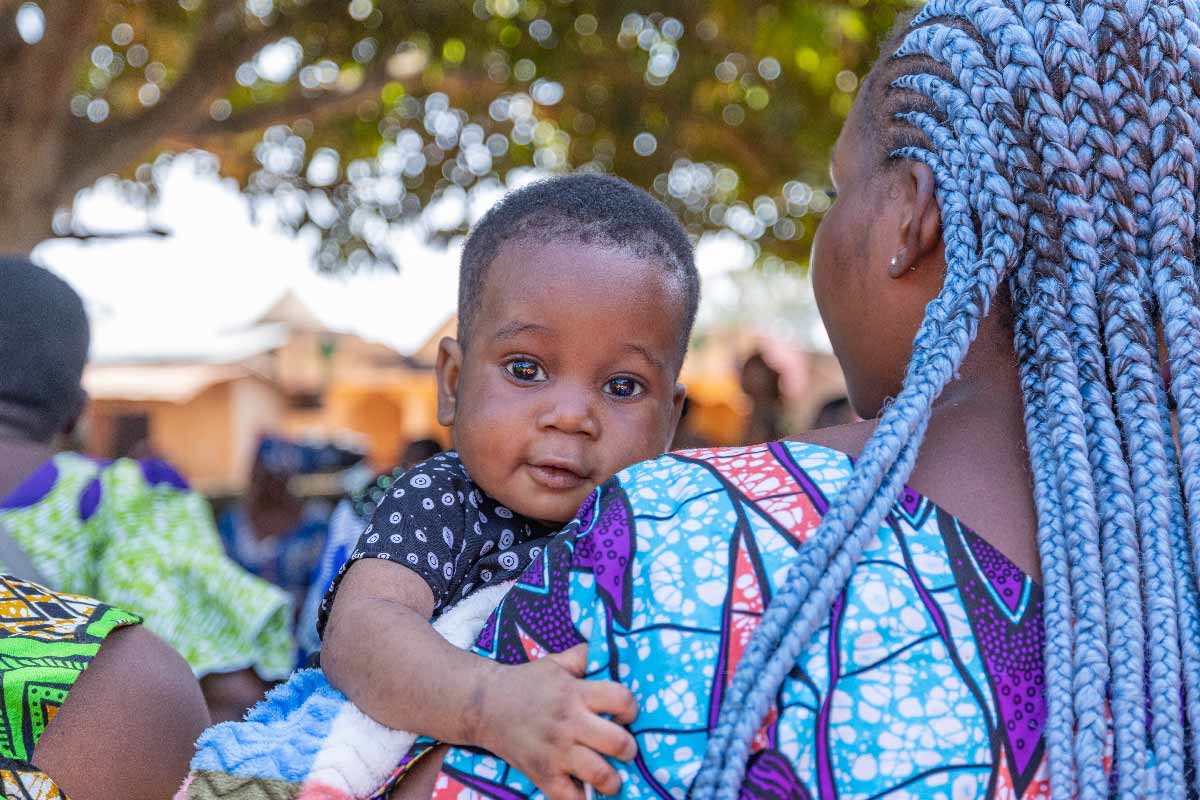Gavi secures record number of pledges: now the hard work of immunising the world’s children begins
The Global Summit: Health & Prosperity through Immunisation saw an unprecedented level of donor engagement, with a record number pledging support for Gavi, the Vaccine Alliance.
- 26 June 2025
- 4 min read
- by Gavi Staff
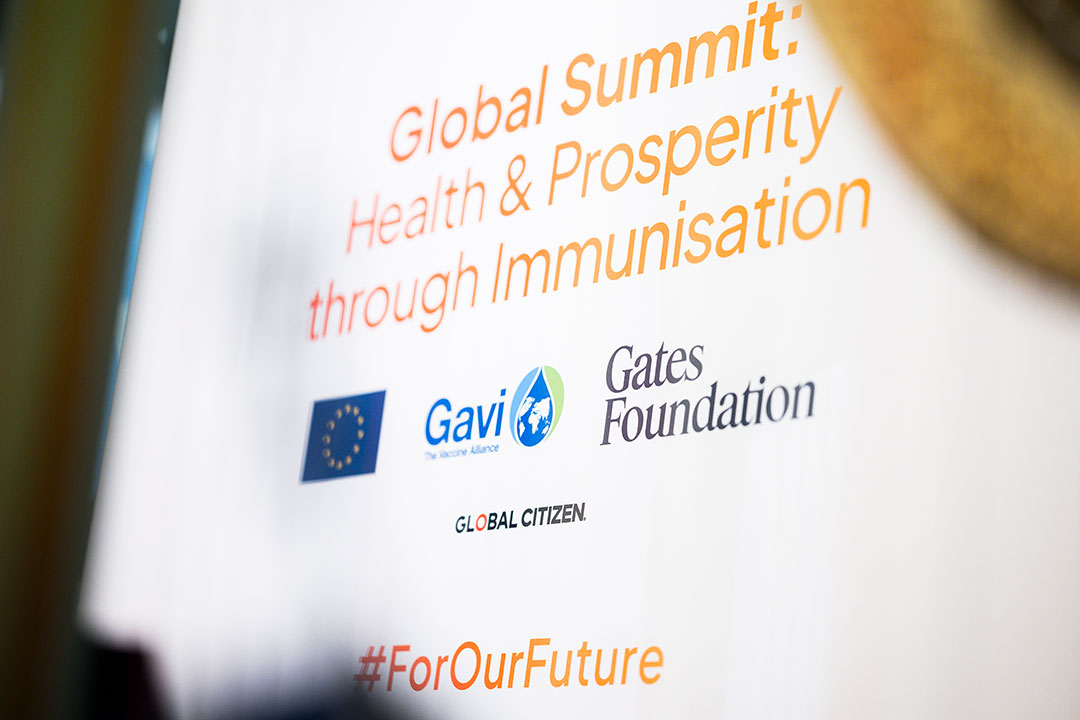
It was a moment of resolve – and a reminder of the work still ahead. At the Global Summit: Health & Prosperity through Immunisation on 25 June 2025, world leaders pulled together in an extraordinary show of support for Gavi, the Vaccine Alliance, securing more than US$ 9 billion in pledges for the next five-year strategic period (2026–2030).
While this falls short of called-for US$ 11.9 billion, additional donor commitments are expected in the coming months. Achieving a fully-funded strategy will be critical for delivery on Gavi’s goals: protecting 500 million children from preventable disease, averting 8–9 million deaths, building firewalls against deadly outbreaks through its emergency vaccine stockpiles, and unlocking US$ 100 billion in economic benefits for countries.
During the summit, Gavi leaders also promised to take a responsible role in constructing a more sustainable wider global health architecture, based on four principles: country-centricity, country self-reliance, focussed mandates and finite lifespans for operational activities.
Record effort
Alongside strong leadership from traditional donors, the summit also saw a record number of new donors step forward to support Gavi’s work, including former and current Gavi-supported countries, the Central African Republic, India, Indonesia, Rwanda and Uganda, as well as philanthropic and private sector donors. Gavi implementing countries also emphasised their strong commitment to the organisation’s co-financing model.
Indonesia, in particular, was lauded as “a great example” by Bill Gates, chair of the Gates Foundation, which announced a further commitment of US$ 1.6 billion, underscoring its enduring partnership in Gavi’s efforts. Indonesia’s two-decade journey from Gavi-supported country to Gavi funder was marked by a pledge of US$ 13 million.
This trajectory was one that Ghana’s President John Dramani Mahama said his country hoped to emulate in the coming years. “We are hoping that we’ll fast-track our weaning off Gavi by 2030,” he said. “It’s my expectation that we’ll work hard to be like Indonesia and in future become a donor country to Gavi.”
Beyond donor pledges, more than US$ 4.5 billion in in new financial instruments and partnerships were announced in support of country systems and accelerated access to vaccines, as well as cost savings of up to US$ 200 million from manufacturers, and more than US$ 149 million in private sector partnerships focused on immunisation delivery.
Have you read?
Age of polycrisis
But these laudable commitments are in a race against growing need.
Geopolitical volatility, the pressures of climate change and the retreat of key development funders all heighten the urgency of Gavi’s mission, speakers at the summit noted.
“Aid in total has gone down by 30 billion this year alone,” said Gates, warning of “a few years where things will go backwards”.
This will mean more mothers rushing babies to hospitals and more health workers fighting outbreaks with limited resources, Gates added.
But as Spanish Prime Minister Pedro Sánchez noted, the summit was also an opportunity to look ahead: “Conflicts are rising everywhere, and health crises are affecting the most vulnerable… that is why today, more than ever, it is necessary to take a step forward.” The Spanish pledge of €130 million formed part of an indispensable aggregate European commitment of €2 billion, announced by Ursula von der Leyen on behalf of the EU.
Other leaders agreed that funding Gavi provided an optimistic counterpoint to the braced posture many nations have recently adopted.
“What a hopeful room to be in,” said UK foreign secretary David Lammy, smiling as he announced the UK’s £1.25 billion pledge – calling it a “smart investment”.
Greek PM Kyriakos Mitsotakis announced his nation’s commitment, saying, “Some of us came back from the NATO summit in order to make sure that we are with you here today, to reconfirm our support to Gavi. And I was thinking that if we can afford... to spend 5% of our GDP on defence over the next years, we certainly can afford to contribute €5 million to Gavi.”
John Dramani Mahama, President of Ghana, echoed the comparison: “One B-2 Spirit bomber costs 2.3 billion dollars,” he said. “If you work the math, what Gavi is seeking is the value of four of those B-2 bombers. Surely the world can afford the value of four B-2 bombers to save 500 million children. It’s a choice we have to make: between taking lives and saving lives.”
In those terms, the $9 billion pledged so far resound encouragingly as a collective vote for life. There are ballots yet to be cast.
